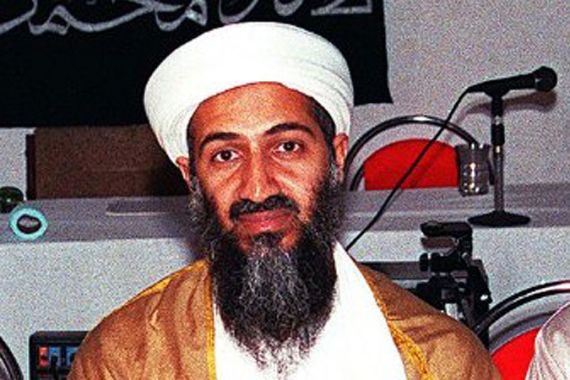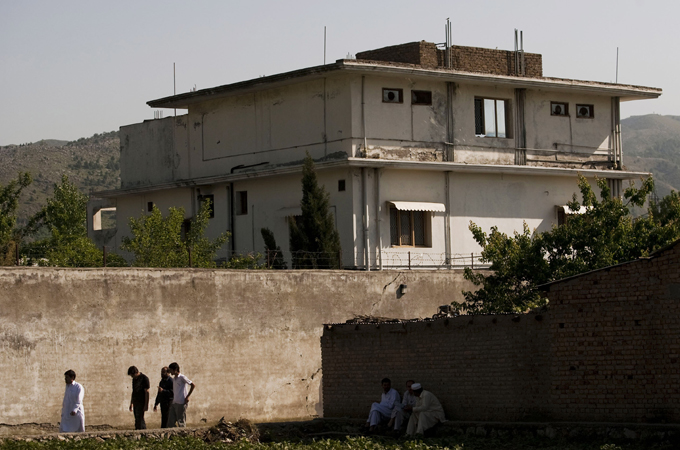Bin Laden: US kills al-Qaeda leader
The US special forces raid in Pakistan which killed al-Qaeda’s leader was our No. 3.

 |
| Before bin Laden was killed in his Pakistani compound, most believed his leadership role had diminished [GALLO/GETTY] |
On May 2, 2011, the United States scored a significant symbolic, if not strictly functional, victory in its war against al-Qaeda and its affiliates, killing the leader of the group in a covert operation deep inside Pakistani territory.
That night, acting on intelligence gathered over months and through tracking a trusted courier, the US ordered a group of special forces to fly into Abbottabad, 60 km from the Pakistani capital, to capture and/or kill Osama bin Laden.
In the ensuing gunfight, which took place not two kilometres from Pakistan’s military academy at Kakul, bin Laden and four others (including one of his sons) were killed. The US soldiers took custody of Bin Laden’s remains, as well as around 100 hard drives, five computers and bin Laden’s handwritten journal.
Controversially for some, bin Laden was later buried at sea by the US military. US officials said the body was given the proper Muslim rituals of burial, and that a Muslim cleric was in attendance.
The news, delivered by US President Barack Obama in a brief address to the nation, prompted celebrations across the United States, with hundreds gathering outside the White House, chanting slogans against the dead leader and in favour of the US.
The raid also prompted a diplomatic row between the United States and Pakistan, whose military and government was not informed of the raid in advance for fear of the information being leaked.
The row rages to this day, threatening a key alliance for the US in the region as it begins to pull out from its war in Afghanistan.
But public celebrations and diplomatic crises aside, the intelligence gathered from bin Laden’s home seemed to indicate what most analysts already suspected: that the al-Qaeda leader had been relegated to a more ideological role in the organisation, hardly involved at all in the operational and planning aspects al-Qaeda’s activities.
The death was symbolic, on both sides of the divide – a victory for the US and a blow for al-Qaeda and its affiliates. In the aftermath, Ayman al-Zawahiri, bin Laden’s deputy, was named as the group’s new chief. The killing in September of Anwar al-Awlaki – a US citizen and influential cleric believed to have strong ties to al-Qaeda – in a drone strike in Yemen further weakened the group.
Analysts argue that al-Qaeda was already losing influence in the region, however – with or without bin Laden at the helm.
With the Arab Spring protests, which have seen US-allied leaders such as Egypt’s Hosni Mubarak, Tunisia’s Zine El Abidine Ben Ali and now, Yemen’s Ali Abdullah Saleh, as well as Libya’s Muammar Gaddafi, forced from power, Arab citizens were seen to succeed in the same fight that al-Qaeda has been championing (against what it termed the “near enemy”) for years. Al-Qaeda played virtually no role in any of those uprisings.
Over the years, analysts say the organisation has grown more decentralised, allowing franchises (including larger groups such as Yemen-based al-Qaeda in the Arabian Peninsula, Algeria-based al-Qaeda in the Islamic Maghreb and other groups in Somalia and elsewhere) greater degrees of freedom to define their targets and operations.
Attacks against the United States and their allies have tended to be carried out by single operatives, rather than through co-ordinated action (as was seen on September 11, 2001), indicating a lack of organisational capacity.
It remains to be seen whether 2012 will bring an even further weakening of al-Qaeda, but Bin Laden’s killing was perhaps another nail in the coffin of the group as it has existed for the last 10 years.